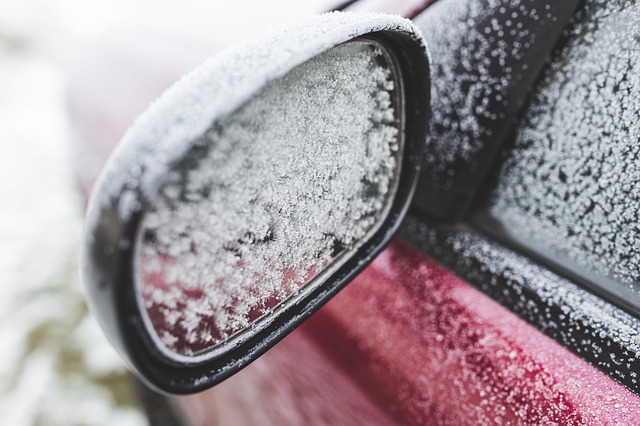Although Michigan autumns are known for their vibrant colors, crisp weather, and delicious dishes, they also serve as a warning that frigid winters are fast approaching. This means dreaded lake-effect snowstorms, black ice, highway pile-ups and drifts as tall as your car. A good way to avoid getting stuck in this weather is to make sure that your vehicle is in tip-top shape to carry you through the season. Use this short checklist to give your car a once-over before the chill sets in.
-
Check your antifreeze
Antifreeze is what protects your engine from freezing during the cold winter months. It’s important that you have the right mixture of antifreeze in your engine coolant, generally a 50:50 ratio. Don’t worry about having to mix up any crazy concoctions, your local gas station should carry an inexpensive mixture
-
Check your tires
Ever get that horrible feeling where you hit the brakes and your car just skids along on a patch of black ice? A good way to dodge situations like that is to practice proper tire maintenance. Your first option would be snow tires. They are made of a softer rubber that won’t become brittle like regular tires do, giving you more traction through icy Michigan winters.
New tires not an option? Just make sure your tires have the right amount of pressure. Tires that are properly inflated can give you better braking time, better traction, and better control. Your owner’s manual will tell you what PSI your tires should be at for your vehicle.
-
Check your windshield wipers and wiper fluid
Poorly functioning windshield wipers are more than just frustrating, they can be dangerous. You don’t want to find yourself on the highway in a snowstorm with wipers that just drag the snow around on your windshield. To ensure this doesn’t happen, change your windshield wipers every 6-12 months. If they seem torn up or frayed, it’s probably time for a new set.
It’s also important to make sure you refill your wiper fluid for the winter, since a generic fluid probably won’t cut it for freezing temps. Often times you can find “winter blend” wiper fluids that will give you the best performance for the weather.
-
Check your battery
A breakdown in the middle of winter is every Michigan driver’s nightmare. A good way to avoid this is to check your battery before winter hits. Most batteries last for about 3-5 years, but if you’re unsure about the state of your battery most mechanics and auto care shops will check your battery for free.
-
Check your oil
It’s always a good idea to stay up on your oil changes, but in the winter you may want to change to a different viscosity of oil. Your owner’s manual should be able to help you out with the correct consistency for your vehicle, and you can always get your oil professionally changed as a part of a regular tune-up.
-
Check your gas tank
With constantly fluctuating gas prices, it can be painful to fill up your tank before it hits E, but this is a habit to avoid in the winter. Empty fuel tanks can allow condensation to build up, inviting dangerous water into fuel lines. If water gets into these lines, it can freeze and block any gas from getting through, costing you the big bucks and impeding any kind of holiday travel you may have had in mind. So, for your wallet and your safety, you’ll want keep the needle above the ¼ full line at all times during the frigid months.
-
Check your four-wheel drive
This may seem like a no-brainer, but before snow falls it’s important that you know how to activate your four-wheel drive, and that it’s functioning properly. This way, if there is something wrong, you can fix it before the storms hit.
-
Check your heater and defroster
A broken heater or defroster can make for a very uncomfortable and potentially dangerous winter. You’ll want to check both of these before the temperature drops so you can stay safe and warm.
-
Check your belts and hoses
Cold weather can be hard on your vehicle’s belts and hoses, even if you have a newer vehicle. While these are generally checked with regular tune-ups, even if you’ve been to see the mechanic recently, it can’t hurt to confirm that these are in good shape before you go plowing through the drifts. A snapped belt will leave you on the road phoning a friend.
-
Make sure you’re prepared
Just in case the worst does happen, be certain you’ve got what you need. An ice scraper, a shovel and some kitty-litter can help you out of a lot of sticky situations, and a warm pair of boots, gloves and a hat will keep you warm for those you can’t dig yourself out of.

